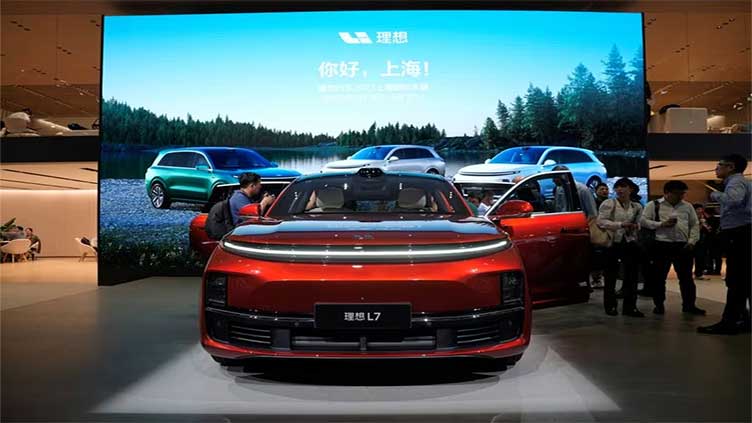China's automakers will defy the great uncoupling

Business
Car companies, and specifically electric vehicles, could sketch out the limits of US protectionism
NEW YORK (Reuters Breakingviews) – It has become a truism that China and the United States are engaged in a great uncoupling. In strategically sensitive areas, from microchips to telecoms equipment, a wedge has already been driven between the two superpowers. But car companies – and specifically electric vehicles – could sketch out the limits of American protectionism.
Detroit-based automakers General Motors and Ford Motor still agree, despite their production difficulties, that electric cars are the future. They’re racing to catch Elon Musk’s Tesla, the US company that proved battery-powered rides can catch on. The Inflation Reduction Act, passed in 2022, promises billions of dollars in subsidies, and companies have announced $80 billion of electrification investments since its passage.
Protecting all-American marques is part of the plan. The IRA focuses too, though, on supporting domestic manufacturing of batteries, electric cars’ most crucial component. The cost of letting China dominate the market is high. Batteries won’t just power cars, but will also be key in propping up the electric grid, since energy from renewable sources must be stored somehow until needed.
The trouble is that China has a formidable lead, which stretches from refining raw materials through to final production. The country accounts for roughly three-quarters of global battery cell supply, according to Benchmark Mineral Intelligence, and has a cost advantage to boot. Chinese nickel-manganese-cobalt cells, the most popular for cars, were 15%, or $18.30 per kilowatt-hour of energy capacity, cheaper than Uncle Sam’s home-made equivalents in August, Benchmark reckons.
Biden’s $35 per kilowatt-hour subsidy for US-made battery cells closes the gap. But Chinese costs are falling rapidly – and, more importantly, the People’s Republic leads in the next wave of battery tech. Tesla, GM and Ford are adopting lower-cost lithium-phosphate batteries for their cheaper models, over 90% of which come from China. Ford had to license the technology from Chinese firm CATL, raising the possibility that US subsidies will flow to its partner. Chinese suppliers are already developing sodium-ion batteries, another upcoming technology, too.
Even for finished cars, there may be routes into the United States: Members of Congress have raised concerns about Chinese automakers establishing operations in Mexico, where fewer import barriers exist. When it comes to chips or cell towers, Washington has an advantage to press. On the road, though, it risks being left behind. That makes the pursuit of decoupling seem a little less logical.



